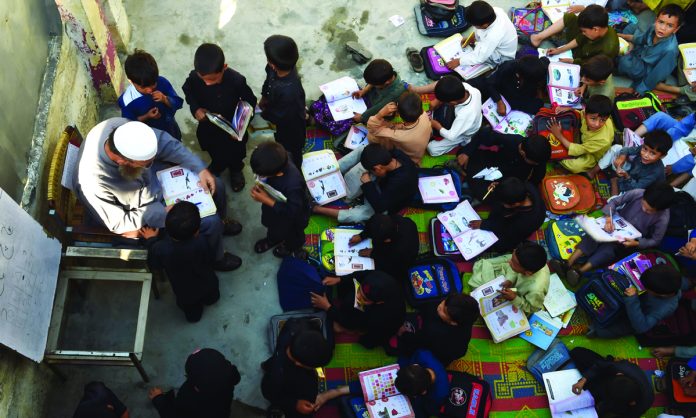Zaheer Yousufzay
It’s no secret that education is the backbone of a nation’s progress. Especially, in today’s rapidly changing world, only those countries are moving forward that have embraced modern technology in their education systems. Concepts like artificial intelligence, e-learning, virtual classrooms, and creative teaching methods are not just trends anymore they are becoming essential tools for learning across the globe. Around the world, these methods are transforming how students absorb knowledge and how teachers deliver it. As Pakistanis, the real question we must ask ourselves is: Where does Pakistan stand in this global shift? Are we adapting, or are we falling behind? In many developed countries, the transformation of education has already taken place. Nations like Finland, Singapore, China, and South Korea have invested heavily in digital learning, integrating smart classrooms and AI-based systems into their schools. These countries are seeing real results stronger student performance, more inclusive education, and faster adaptation to modern challenges. Meanwhile, Pakistan’s education system remains stuck in traditional methods, burdened by a lack of resources, outdated curricula, and slow policy response.
The gap becomes clearer when we compare the numbers. Where developed countries spend 4 to 7 percent of their GDP on education, Pakistan spends just 1.7 percent. This limited investment has led to 23 million children remaining out of school a crisis that demands immediate attention. Around the world, over 80% of schools now use some form of digital technology. In contrast, about 70% of public schools in Pakistan don’t even have basic IT facilities. Internet access, which is essential for online education, is still a luxury in many rural parts of Pakistan, leaving students disconnected from the modern world. Pakistan’s education system is spread across four distinct streams: government schools, private schools, Cambridge system schools (O & A Levels), and religious madrasas. Among these, government schools serve the majority of the population, yet they continue to struggle with chronic underfunding, poor teacher training, and outdated teaching materials, which greatly affect the quality of learning.
Private schools, though known for delivering better academic outcomes, remain financially out of reach for many Pakistani families. Cambridge system schools, offering O and A Levels, are limited to urban elite circles and add to the growing educational divide. Meanwhile, madrasas play a vital role in religious education, but the lack of integration with modern science and technology subjects leaves their students at a disadvantage when it comes to career development and broader participation in the national economy. Several barriers continue to block Pakistan’s path to digital education. The lack of electricity and internet in remote areas makes online learning difficult. Most teachers are not trained in using modern teaching tools, and many students can’t afford the devices needed for digital learning. Slow curriculum updates and the absence of digital awareness among parents and students further slowdown progress. These are not just technical problems they reflect a deeper lack of planning, vision, and political will.
To truly move forward, policy makers must rethink their priorities. First and foremost, the education budget must be increased to at least 4 or 5 percent of GDP. Teachers must be trained regularly in digital skills so they can engage students using modern methods. The government should invest in creating free internet zones and provide affordable tablets and laptops to students from low-income backgrounds. Collaboration with the private sector can also help speed up the introduction of new technologies in classrooms. But beyond infrastructure, what’s most needed is a shift in mindset. Our curriculum should reflect the needs of today’s world, with a strong focus on science, technology, engineering, and digital literacy. Awareness campaigns must be launched to inform parents and students about the benefits of online learning and how to use it effectively. And above all, research and development in the field of education must be supported so that Pakistan can find homegrown solutions for its unique challenges. Pakistan has all the potential to rise in the field of education. Our students are capable, our teachers are passionate, and our youth are eager to learn. What we need now is a clear and honest commitment to change. If we embrace modern technology today, we can build an education system that not only meets global standards but also prepares our future generations to lead in the digital world.
The author is an educationist and a member of team RFI.







